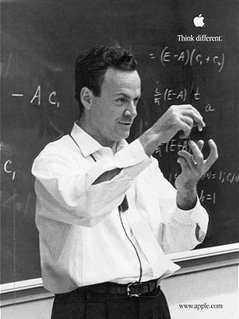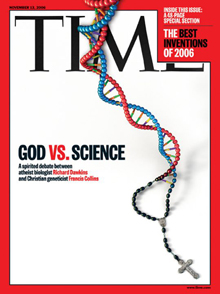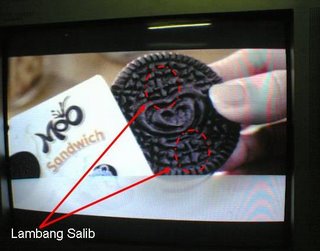Why Are Atheists So Angry?
I've been following with interest, the four-day debate between Sam Harris and Dennis Prager on "Why Are Atheists So Angry?". They could've just titled the debate "Atheist vs. Judeo-Christian Theist" because that's what it was essentially. After going through the final exchange, I couldn't help but laugh because each one is quoting the other and then basically saying that they've been misquoted and misunderstood by the other. This happens all the time, in such debates.
I remember Richard Feynman once said, "We cannot define anything precisely! If we attempt to, we get into that paralysis of thought that comes to philosphers, who sit opposite each other, one saying to the other, 'You don't know what you are talking about!' The second one says 'What do you mean by know? What do you mean by talking? What do you mean by you?', and so on." How true it is!
As difficult as it is to stay neutral, I think Sam Harris argued pretty well. His points are basically those presented in his book, Letter to a Christian Nation so nothing new there. Dennis Prager on the other hand, presented less facts and more opinions. I do not know who Dennis Prager is (says on the site, he's a radio talk show host) and I don't think I want to, after reading what he wrote.
For example, he wrote:
In fact, with no implication intended regarding you, I have almost never encountered “very smart people” who do not believe in God. The vast majority of atheists I have met had fine brain matter, but if “smart” includes wisdom, intellectual depth, profundity of thought, and moral insight, I have encountered such people almost exclusively among believers in the Judeo-Christian God.This guy is saying that almost all 'very smart people' (like himself) believe in God. I wonder how smart you need to be, to be a radio talk show host? I'll bet he only calls you smart if you eat the same burger he eats, support the football team he supports, read the same books he reads and believe in the same God he believes in. Who does he think he is, that he can pass judgement on other people's wisdom, moral insight and intellect?
He also wrote:
Suffice it to that Judeo-Christian values alone gave humanity the notion of the sacredness of human life; linear history and therefore the idea of moral and scientific progress; universal standards of good and evil; the abolition of slavery; the scientific method; the development of democracy; equality of the sexes; the greatest experiment in non-ethnicity-based society (America); the greatest music ever composed; and the greatest art ever drawn. As for India, I have traveled there a number of times and lectured there; I have a deep reverence for its people and culture. But India did not give us those contributions. Nor did China and certainly not any of the societies contemporaneous with the ancient Jews who gave us the Torah from which these values emanate.Now he's insulting the Chinese and the Indians and the Muslims. I don't think this guy has too many friends. Abolition of slavery? The scientific method? Democracy? Equality of sexes? All that because of the Judeo-Christian God? This is utter nonsense. All these things have nothing to do with Judeo-Christian values. Greatest music and art? Again, who does he think he is that he gets to decide which music and art is the greatest?
Then I don't know why he wrote this:
I bet you whatever sum we each can afford that the vast majority of murderers and rapists in this country were not religiously active during the time they committed their violent crimes. I would make a second bet that you won’t take that bet.Why only violent crimes? What about white-collar crimes? What about Ted Haggard? What about those Roman Catholic priests who preyed on young children?
You know, I started writing this post, as I normally did with any post, but after writing the last few lines, I'm really starting to get angry. Now I know why atheists are so angry. Atheists are so angry because there are theists like Dennis Prager, who spew venomous nonsense in the airwaves and into people's minds.
Technorati tags: sam harris, dennis prager, atheists angry, debate
Read more!





















